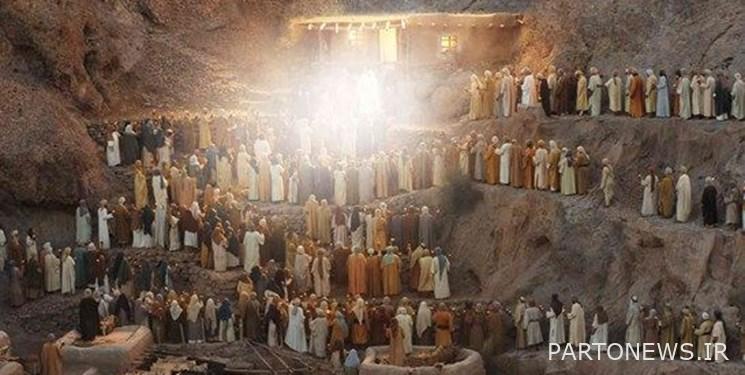Prophet of Mercy and Mercy-Based Governance / It is not enough just to provide for the interests of the people

Fars News Agency Legal and Judicial Department – On the occasion of the birth of the Prophet of Mercy (PBUH) Seyyed Ahmad Habibnejad, a lawyer and member of the Department of Public and International Law, Farabi Campus, University of Tehran, in a note explains the principle of kind and compassionate treatment of people as one of the principles of governance from the Islamic perspective.
Habibnejad believes that Islamic rule is merciful and that the leader of the Islamic government is obliged, in addition to trying to provide for the interests of the people, to be like a kind father to them and to treat his people with compassion and fatherhood. You can read the details of this note below:
The rule of divine mercy
From the point of view of public law, the description of God in the Qur’an, and especially at the beginning of all suras except one surah (Surah Tawbah), implies that God’s absolute sovereignty over man and the world and all creatures is based on His infinite mercy. Other: It is a mercy-based government.
The necessity of divine mercy towards human beings is the provision of human interests in all material, spiritual, worldly and otherworldly dimensions, along with compassion and mercy towards them. In other words, mercy means providing expediency in addition to compassion and compassion, and this is the main advantage of the Islamic view of sovereignty, which must be seriously considered.
In order to be able to consider the principle of mercy as one of the most important principles of governance, we can use two rational and narrative reasons. In rational reason, it should be said that God has the highest attributes of perfection, including the description of mercy. On the other hand, in the path of his own perfection, man must be characterized by these qualities in his own human level; Because one of the divine attributes is mercy, then man must also be characterized as an attribute of mercy in his path of perfection. This rational argument is also confirmed by narration, such as تَخَلَّقُوا بِأخلَاقِ اللّهِ.
In the path of narrative reasoning, we go to narrations that indicate that man should seek to acquire divine attributes, such as “create with the morality of God” or “and take them with the morality of God and carry them on them, for God Almighty loves them and loves them.”
The interpretation mentioned in the words of the Prophet (PBUH) “Fan Allah Almighty loves …” shows that all the moral superiorities that are interpreted as the morality of God are recommended by Islam, such as the narration of “create with the morality of God” or another holy hadith that God Prophet David (pbuh) said: “Moral creation” refers to the command to obtain divine attributes, which shows the desirability of obtaining divine attributes by man.
Therefore, in response to that doubt, even for those who do not believe in the interrelationship between nuclei and musts, it can be said that (nuclei) have an indirect relation to (musts) by attaching another rational or narrative premise.
Another argument for this is the use of the concept of caliphate. Since according to the Qur’anic teachings, man is the caliph of God, he should try as much as possible to manifest the divine attributes in himself in order to reach his existential perfection. The requirement of the Caliphate is that the Caliph be like the transgressor in his attributes and deeds, and therefore, the Caliph of God on earth must be endowed with divine morality.
Allameh Tabatabai believes that “one of the duties of the caliphate is to show the attributes and actions of the wrongdoers, and to be a mirror of his attributes. Do his job. Therefore, the caliph of God on earth must be created according to the morality of God, and he will do what God wills, and he will judge what God commands, and because God always rules with the truth “وَاللَّهُ يَقْضِی بِالْحَقِّ “He should not judge except by the truth, and he should not walk except by the way of God, and he should not transgress and transgress in that way.”
The leader of the Islamic government as a kind father
From the basis of divine sovereignty on the axis of mercy, it can be inferred that sovereignty in Islamic society should be based on the same, as it is stated in a narration of the Prophet of Islam (PBUH) that ” یملِکُ بِهِ غَضَبَهُ وَ حُسْنُ الْوِلَایَةِ On me, even if they are the children of the Most Merciful »
In this narration, two interpretations deserve attention and reflection, first, that one of the duties of the leader of the Islamic government is to consider compassionate and fatherly treatment of the people as “Kalwald al-Rahim”. It is clear that such behavior goes beyond simply serving the public interest; Because a leader may not be paternalistic towards the people while serving their interests, therefore, the above narration indicates another duty of the leader of the Islamic society.
The second interpretation that deserves reflection is the interpretation of “good governance” which means good and good governance. We know that the term good governance has been introduced in legal communities in recent years, while the elements of good governance have been discussed more carefully and extensively in Islamic texts and texts and can be deduced.
From what has been said, we conclude that from the Islamic point of view, sovereignty has three main elements: power, the provision of public interests, and the kind and compassionate treatment of the people.
End of message /
You can edit this post
Suggest this for the front page
.

